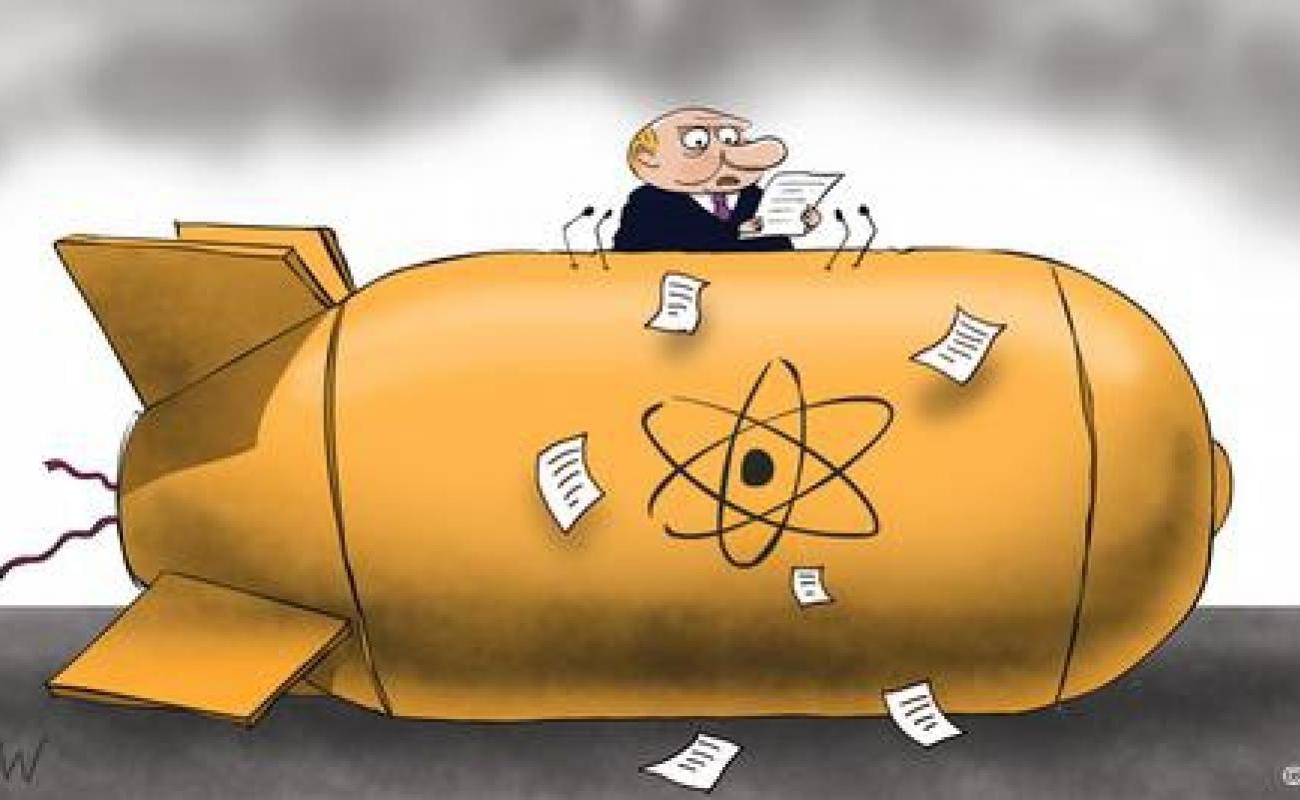Why is Putin scaring the world again with a nuclear strike?

Russian dictator Vladimir Putin is entering an impasse and therefore hopes to intimidate the West in order to help him get out of it, Konstantin Eggert believes.
The answer to the question contained in the title is quite simple: not from a good (in Putin's sense) life. The two and a half years that have passed since the beginning of the full Russian invasion of Ukraine have shown that the Russian dictator is starting to scare the world by mentioning nuclear weapons when things are not going so well for him. However, North Korean leader Kim Jong Un usually does the same.
The terrible secrets of the Kremlin. Is it fiction?
And things are going bad now. The Kursk region occupied by Ukraine is still under the control of Kiev. The regime is frankly afraid to announce the mobilization. Volodymyr Zelenskiy receives new military aid in America and presents his plan for further resistance to aggression to President Biden.
And now, in response, Putin has offered to change Russia's nuclear doctrine again. The goal is an even greater "liberalization" of the criteria for the use of nuclear weapons. Putin proposes to allow it to be used when "aggression" against Russia is carried out even by a country that does not possess nuclear weapons - provided that conditional aggressor is supported by a nuclear state. The translation from Putin's is simple: if nuclear America, Great Britain and France are helping non-nuclear Ukraine, then both they and Ukraine can now be considered legitimate targets of Russian nuclear forces.
The tape from the Kremlin allegedly showed us only the open part of the meeting of the Russian Security Council on nuclear deterrence, which, according to Putin, meets twice a year. On it, Putin stated another criterion for the use of nuclear weapons. The blow can be inflicted "due to obtaining reliable information about the mass launch of air and space attack aircraft and their crossing of our state border. I mean strategic and tactical aircraft, cruise missiles, drones, hypersonic and other aircraft". The Russian ruler is deliberately not saying how a "massive launch" is defined and whether all these means of attack must carry nuclear warheads or whether one "massive" attack is sufficient. In addition, it has been reported that Russia is ready to cover Belarus with a nuclear shield if it is attacked.
Then the cameras were turned off and the closed part of the meeting began. According to the Kremlin, this secrecy should strike fear into Russia's enemies.
However, judging by the urgent appearance of Putin's alter ego Dmitry Peskov in the Russian media, all these statements and the fog of mystery are just a PR move. As Peskov himself said, to "send a signal" to Western countries.
For the second time, Peskov explained in detail all Putin's ideas and emphasized: he says, it is unclear when changes will be made to the text of the nuclear doctrine. There is a complete sense that the Kremlin is literally begging for the West's attention:
"Did you really pay attention to our leader's statements? If not, then we will explain everything again."
The West responded to Putin's threats
The collective West paid attention to Putin's words. US Secretary of State Antony Blinken called his rhetoric "irresponsible" and noted that China would clearly not like it - a deliberately insulting hint to Putin about who is senior in the Moscow-Beijing tandem. The European Union also condemned Putin's threats. And German Defense Minister Boris Pistorius, who was visiting Vilnius, succinctly answered the question to comment on the Russian dictator's statement: "Nuclear threats are part of Vladimir Putin's tools. My role... is not to be a spokesperson and spreader of his threats. We do what which we consider necessary to make it clear: NATO stands firm in its positions".
A war without meaning and perspective
Some time ago, the author of these lines had a strong feeling: for the Russian regime, this war has lost its strategic meaning. Yes, Russian troops are continuing their offensive on Vugledar, but even if they take the town, nothing fundamental will change. The war economy works, but its capabilities are clearly insufficient to ensure a decisive victory. The most important thing: Russian society, traditionally fragmented and indifferent to everything but personal gain, is showing certain signs of war fatigue. Tightening in this case becomes dangerous. If indifference ends, then one of the main resources that allow the regime to wage war will disappear.
It seems that the Kremlin continues its aggression as if by inertia and is waiting for an opportunity to at least temporarily stop it. Of course, without major loss of face and retention of most of the conquered territories. Threats to respond "nuclearly" to a non-nuclear attack look like a clumsy attempt to draw attention to themselves and force the often too timid West to finally ask: "So what do you need?". And behind this, as they probably hope behind the Kremlin wall, there are negotiations and a rest before the new campaign.
Will Europe and America fall into this simple trap? Probably not. But Putin is still hopeful.
